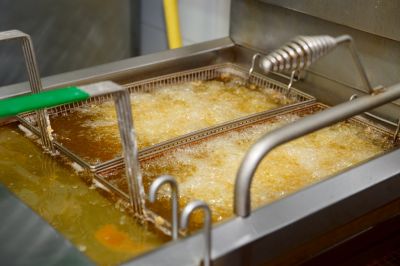Ultimate Gear For Effective Grease Trap Maintenance
Find the essential equipment and products that make grease trap cleaning safer, faster, and more thorough.
 Maintaining a grease trap is a crucial aspect of managing commercial kitchen operations, preventing blockages, and ensuring compliance with sanitation standards. A variety of products are available to facilitate efficient grease trap cleaning, ranging from chemical agents to mechanical tools. These products are designed to break down fats, oils, and greases (FOG), making the cleaning process smoother and more effective. Proper selection of cleaning products can help reduce odors, prevent clogs, and extend the lifespan of the grease trap itself.
Maintaining a grease trap is a crucial aspect of managing commercial kitchen operations, preventing blockages, and ensuring compliance with sanitation standards. A variety of products are available to facilitate efficient grease trap cleaning, ranging from chemical agents to mechanical tools. These products are designed to break down fats, oils, and greases (FOG), making the cleaning process smoother and more effective. Proper selection of cleaning products can help reduce odors, prevent clogs, and extend the lifespan of the grease trap itself.
Top Overall Option
Biological Grease Trap Treatment
A biological treatment product that utilizes enzymes and beneficial bacteria to naturally break down fats, oils, and greases in the trap. It is suitable for regular maintenance and helps reduce odors and buildup without harsh chemicals. This type of product is often favored for its ease of use and minimal impact on plumbing systems.
Types of Products For Grease Trap Cleanings
Enzymatic Bacterial Solutions
Biological products that use enzymes and bacteria to digest grease, ideal for ongoing maintenance.
Chemical Degreasers
Powerful chemical agents designed to dissolve stubborn grease deposits quickly.
Foaming Cleaners
Foam-based solutions that cling to surfaces, providing thorough coverage for grease removal.
Mechanical Scrapers and Brushes
Physical tools used to manually remove grease and debris from the trap and pipes.
High-Pressure Sprayers
Equipment that uses pressurized water to dislodge and wash away grease buildup.
Biodegradable Cleaners
Environmentally friendly cleaning agents that break down grease without harmful residues.
Deodorizing Agents
Products formulated to neutralize odors caused by grease and organic matter.
Drain Augers
Mechanical tools used to clear blockages deep within the pipes connected to the grease trap.
Vacuum and Suction Devices
Equipment to remove accumulated grease and sludge from the trap efficiently.
Pump-Out Systems
Systems designed for the safe removal and disposal of grease and sludge from traps.
Biological Enzyme Powders
Powdered formulations that activate biological digestion of fats over time.
Liquid Biological Cleaners
Liquid solutions containing enzymes and bacteria for regular grease trap maintenance.
Solvent Cleaners
Strong solvents used to dissolve accumulated grease in pipes and traps.
Odor Neutralizers
Products that help eliminate foul smells emanating from grease traps.
Popular Choices
Widely used for regular maintenance, these products leverage natural enzymes to reduce grease buildup.
Commonly selected for quick and intensive cleaning, especially in high-volume settings.
Effective for reaching into crevices and ensuring thorough coverage during cleaning.
Frequently used for physical removal of stubborn grease and blockages.
Preferred for their ability to dislodge grease deposits with forceful water streams.
Popular for maintaining a fresh environment around the grease trap area.
Commonly used for efficient removal of accumulated grease and sludge.
Chosen for their safety and effectiveness in breaking down grease naturally.
Popular for their ease of use and ability to support biological digestion of fats.
Often selected for their quick action on grease deposits.
Utilized for manual removal of grease buildup in traps and pipes.
Cleaning products for grease traps typically fall into several categories, including enzymatic and bacterial treatments, chemical degreasers, and physical cleaning tools. Enzymatic and bacterial solutions work by naturally breaking down fats and oils through biological processes, often requiring regular application for ongoing maintenance. Chemical degreasers are potent solutions designed to dissolve stubborn grease buildup quickly, suitable for more intensive cleaning sessions. Mechanical tools such as brushes, scoops, and high-pressure sprayers complement chemical and biological products by physically removing residues and debris.
Choosing the right product depends on the size of the grease trap, the frequency of cleaning, and specific operational needs. For businesses with high grease volumes, a combination of chemical and biological treatments might be most effective. Regular maintenance with compatible products can help prevent the formation of thick, hard-to-remove layers of grease, reducing the risk of blockages and backups. Always consider compatibility with your existing plumbing and adhere to safety guidelines when handling cleaning agents.
Proper training on product usage and understanding the manufacturer's instructions are essential to maximize effectiveness and safety. Investing in quality products tailored for grease trap cleaning can lead to smoother operations, fewer disruptions, and a cleaner, more compliant kitchen environment.
Key Buying Considerations
- Compatibility with existing plumbing systems to prevent damage.
- Type of treatment suitable for your grease trap size and usage frequency.
- Ease of application and whether the product requires special handling or equipment.
- Effectiveness in breaking down fats, oils, and greases without causing clogs.
- Safety and handling instructions to ensure safe use by staff.
- Odor control capabilities for maintaining a fresh environment.
- Environmental impact, if relevant, to avoid harmful residues.
- Cost-effectiveness over time considering product longevity and required frequency.
- Physical cleaning tools that complement chemical or biological treatments.
- Regulatory compliance and adherence to local waste disposal guidelines.
- Customer reviews and feedback regarding product performance.
- Availability of technical support or guidance from the manufacturer.
- Versatility for different types of grease traps and operational conditions.
- Storage requirements and shelf life of the products.
- Potential impact on plumbing warranties or service agreements.
